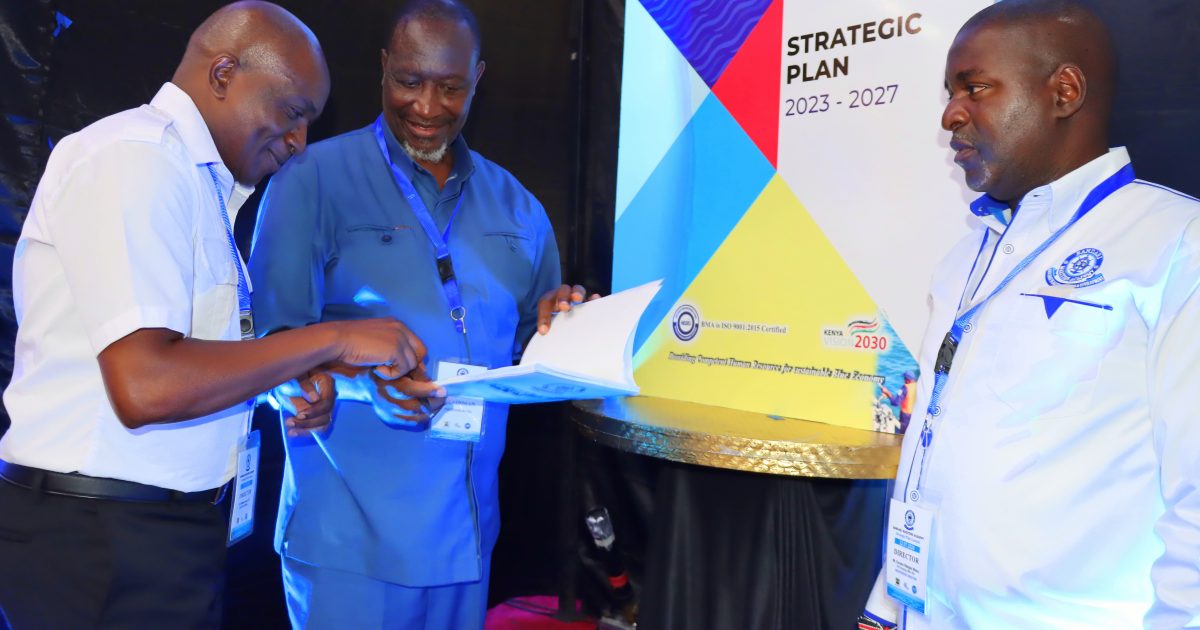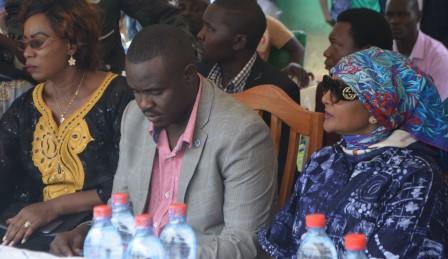The government is committed to advance maritime education and training in Kenya through the construction of a state of the art Maritime Survival Training and Certification Centre at the Bandari Maritime Academy (BMA).
As part of measures to expand infrastructure BMA has embarked on the construction of a Maritime Survival Training and Certification Centre which is expected to serve as a beacon of excellence in maritime safety training, providing comprehensive programs to equip professionals with essential skills for navigating emergencies at Sea.
Speaking during the launch of BMA Strategic Plan 2023-2027, Professor Kinandu Muragu Chair of BMA Board of Directors said that the academy is expected to receive an enhanced allocation of Sh574 million.
Muragu said in the financial year 2023/2024 the academy received Sh250 million.
The project began on July 1st, 2024 and is set to be complete by December 31st, 2026.
“This substantial funding underscores the government’s commitment to advancing maritime education and training and will play a crucial role in the successful construction and operation of the Maritime Survival and Training Certification Centre,” he said.
He noted that the development is designed to provide students with hands-on realistic training experiences that are crucial for their preparedness in maritime safety and emergency response.
Prof. Muragu noted that the board acknowledges the strategic collaborations geared at offering Seaboard Training opportunities to facilitate on-the-job training in areas such as navigation, marine engineering, and vessel management, industry experience and career development.
“These seaboard training programs not only enhance the skills and competencies of students but also help them build valuable industry connections, increasing their chances of securing employment upon completion of studies,” he added.
Chief Executive Officer BMA Dr. Eric Katana said that the Strategic Plan was informed by the fourth MTP 2023-2027, BETA agenda geared towards economic turnaround of the country through a value chain approach and Kenya Vision 2030 which has guided development planning since 2008 and the guidelines for preparation of the fifth generation strategic plans for ministries, departments, agencies and counties (MDACs).
Katana said the academy is also planning to implement an effective e-learning management system, establish TOT programmes with developed maritime training institutions, establish research and innovation in maritime education and training, enhance quality assurance mechanisms and improve student welfare.
The CEO noted that the strategic plan will guide BMA towards innovation, adaptability and sustainability.
He added that the plan aims at developing MET relevant Infrastructure and land strengthening legal and partnership frameworks for BMA, developing sustainable revenue streams and recruit, train and retain qualified staff, developing competent skills for the maritime industry, developing or reviewing industry and market driven curricula and to develop curricula that aligns to the evolving maritime technology.
The academy leadership also said they are also projecting to send at least 1,000 maritime personnel in the shipping world annually as a key area in strategic plan 2023-2027.
Muragu highlighted that the plan takes into consideration the rapid increase in the demand for maritime personnel in the Blue Economy especially after the government declared Blue Economy as one of the economic pillars of Vision 2030.
“Bandari Maritime Academy is aiming to send at least 500 maritime personnel worldwide in the Blue Economy sector and 1000 maritime personnel from within Kenya annually,” he said.
The Chairman noted that the move will ensure that the institution aligns with the government’s journey to embark on implementing the 4th medium term plan of the vision 2030 with a focus on the “Bottom-up economic transformation” agenda.
By Chari Suche and Nuru Soud




